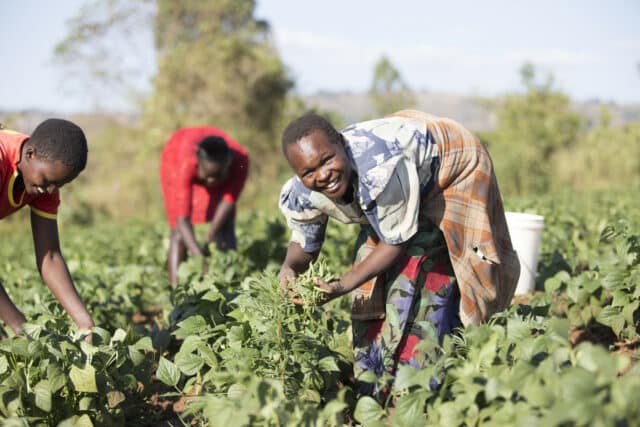Our work
Our programmes
Browse our programmes to learn more about the innovative ways we're partnering with farmers to grow a greener future.
Filter by:
Active
Sustainable agricultural value chain enterprises in central Kenya (SAVES)
Running since
2024
Country
Kenya
Target reach
120,000
Key focus areas
Act on climate change
Boost productivity
Increase incomes
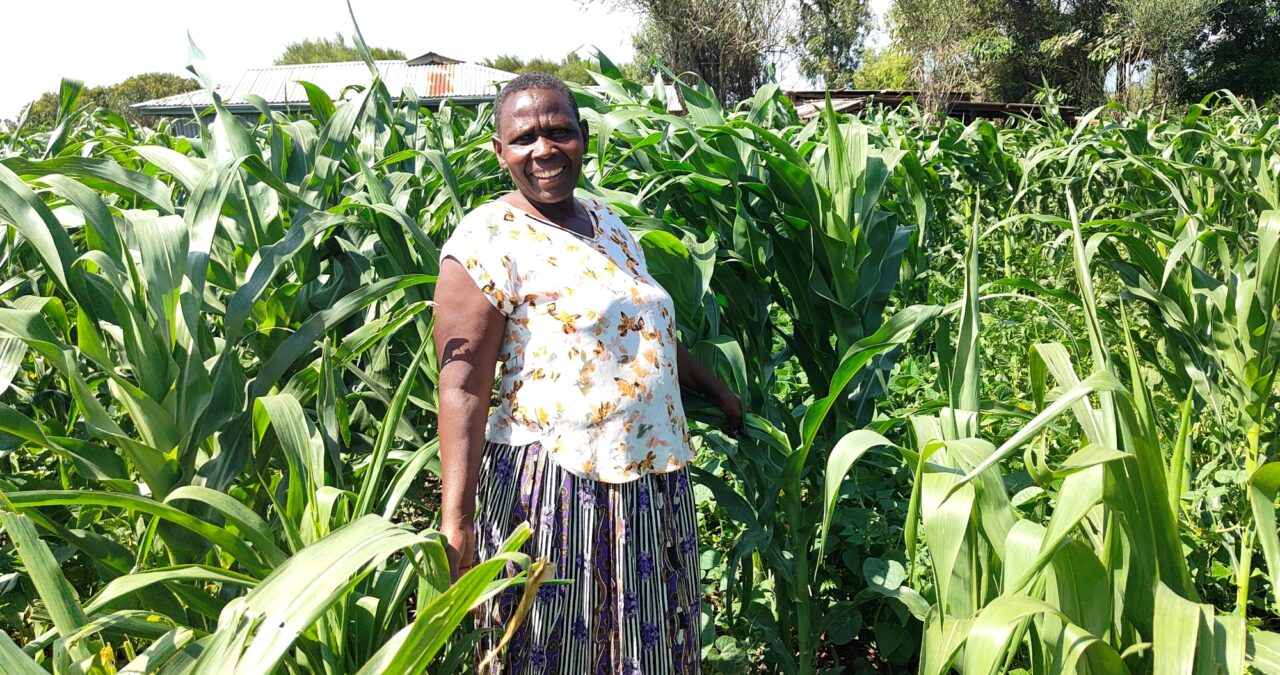
Sustainable agricultural value chain enterprises in central Kenya (SAVES)
Running since
2024
Country
Kenya
Target reach
120,000
Key focus areas
Act on climate change
Boost productivity
Increase incomes
Active
Sustainable agricultural value chain enterprises in central Kenya (SAVES)
With funding from AGRA, the Sustainable agricultural value chain enterprises in central Kenya (SAVES) project is creating sustainable and inclusive agricultural systems that increase food security, incomes and climate resilience for smallholder farmers and broader rural communities.
Working with farmers in Kenya’s Meru, Kirinyaga and Laikipia counties, we are building resilient agricultural systems resilient that are tailored to the local region. We are encouraging the use of nutritious, drought-tolerant crops, water-efficient agronomic practices and sustainable agriculture to help farmers stabilize their crop yields despite climate challenges.
We are promoting crops such as maize, beans and leafy vegetables, alongside offering support for improved seed production. We are delivering training to farmers in seed selection, management and multiplication, and the adoption of sustainable climate-resilient and locally adapted seeds. With better access to high-quality seeds, crop losses have reduced by 30%, enhancing farmers’ resilience to climate shocks.
Running since
2024
Country
Kenya
Target reach
120,000
Key focus areas
Act on climate change
Boost productivity
Increase incomes
Active
Acorn agroforestry
Running since
2020
Country
Kenya
Target reach
21,000
Key focus areas
Act on climate change
Increase incomes
Protect ecosystems
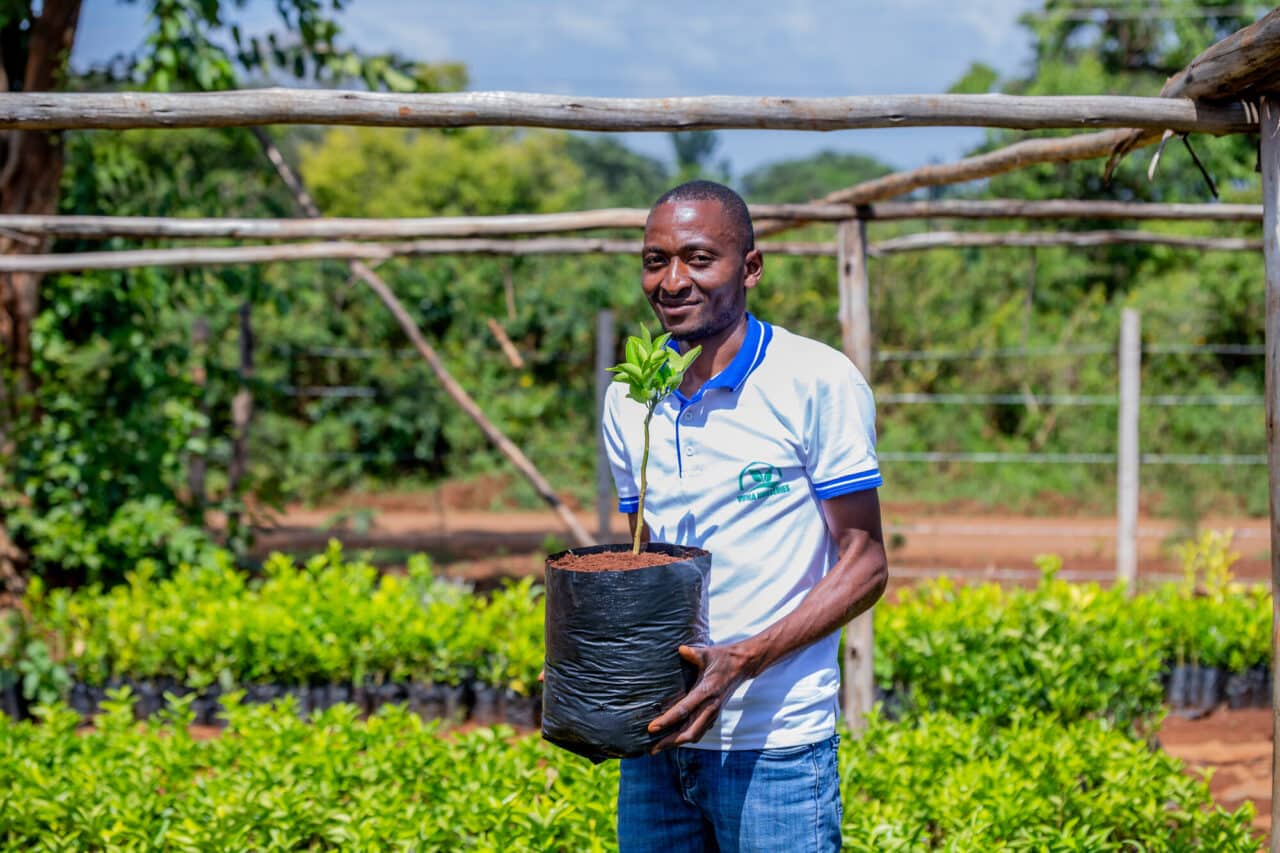
Acorn agroforestry
Running since
2020
Country
Kenya
Target reach
21,000
Key focus areas
Act on climate change
Increase incomes
Protect ecosystems
Active
Acorn agroforestry
Farm Africa’s Acorn agroforestry project, launched in 2020 in partnership with Acorn, Rabobank and AGRA, integrates carbon-based incentives with sustainable agriculture.
The project supports farmers in Embu and Tharaka Nithi counties to adopt agroforestry, a technique that integrates trees into traditional farming systems. When trees grow, carbon is captured from the atmosphere and stored in trees.
The Acorn initiative, short for ‘Agroforestry CRUs for the Organic Restoration of Nature’ creates Carbon Removal Units (CRUs). A CRU represents one tonne of carbon removed from the atmosphere. Acorn sells the CRUs to corporations that want to offset their unavoidable emissions and returns 80% of the revenue generated to the farmers. In this way, the Acorn initiative allows farmers to monetise the carbon stored in their trees and be financially rewarded for their contribution to mitigate climate change.
Running since
2020
Country
Kenya
Target reach
21,000
Key focus areas
Act on climate change
Increase incomes
Protect ecosystems
Active
Youth in sustainable aquaculture
Running since
2023
Country
Kenya
Target reach
150,000
Key focus areas
Boost youth employment
Connect farmers to markets
Increase incomes
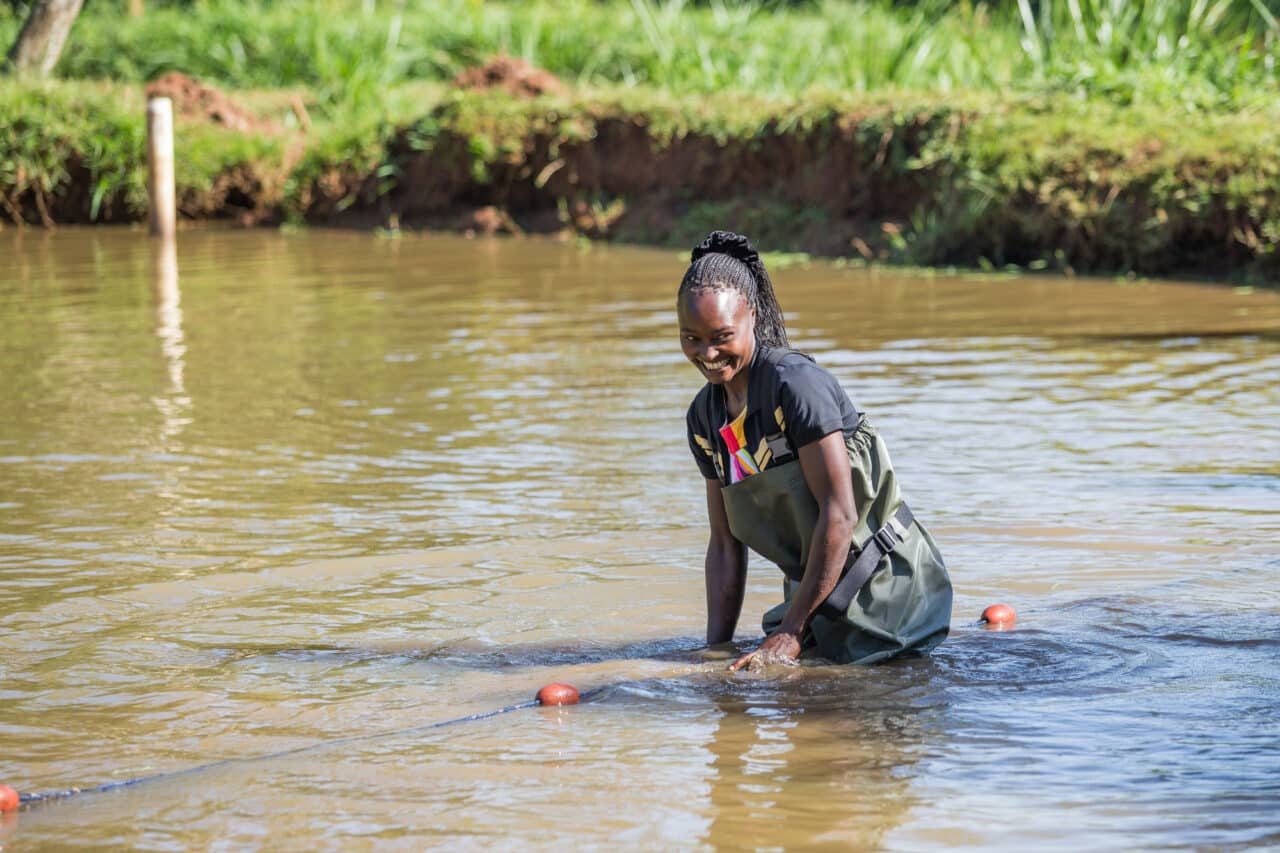
Youth in sustainable aquaculture
Running since
2023
Country
Kenya
Target reach
150,000
Key focus areas
Boost youth employment
Connect farmers to markets
Increase incomes
Active
Youth in sustainable aquaculture
The surging demand for fish in Kenya presents a promising opportunity for economic growth through the aquaculture and mariculture sectors. However, despite their potential, these sectors remain largely untapped by young men and women seeking employment and work opportunities.
Recognising this untapped potential, the Mastercard Foundation is joining forces with Farm Africa and partners to build thriving, dynamic aquaculture and mariculture sectors.
Running since
2023
Country
Kenya
Target reach
150,000
Key focus areas
Boost youth employment
Connect farmers to markets
Increase incomes
Active
Regenerative agriculture
Running since
2020
Country
Kenya
Target reach
60,000
Key focus areas
Boost productivity
Increase food security and nutrition
Protect ecosystems
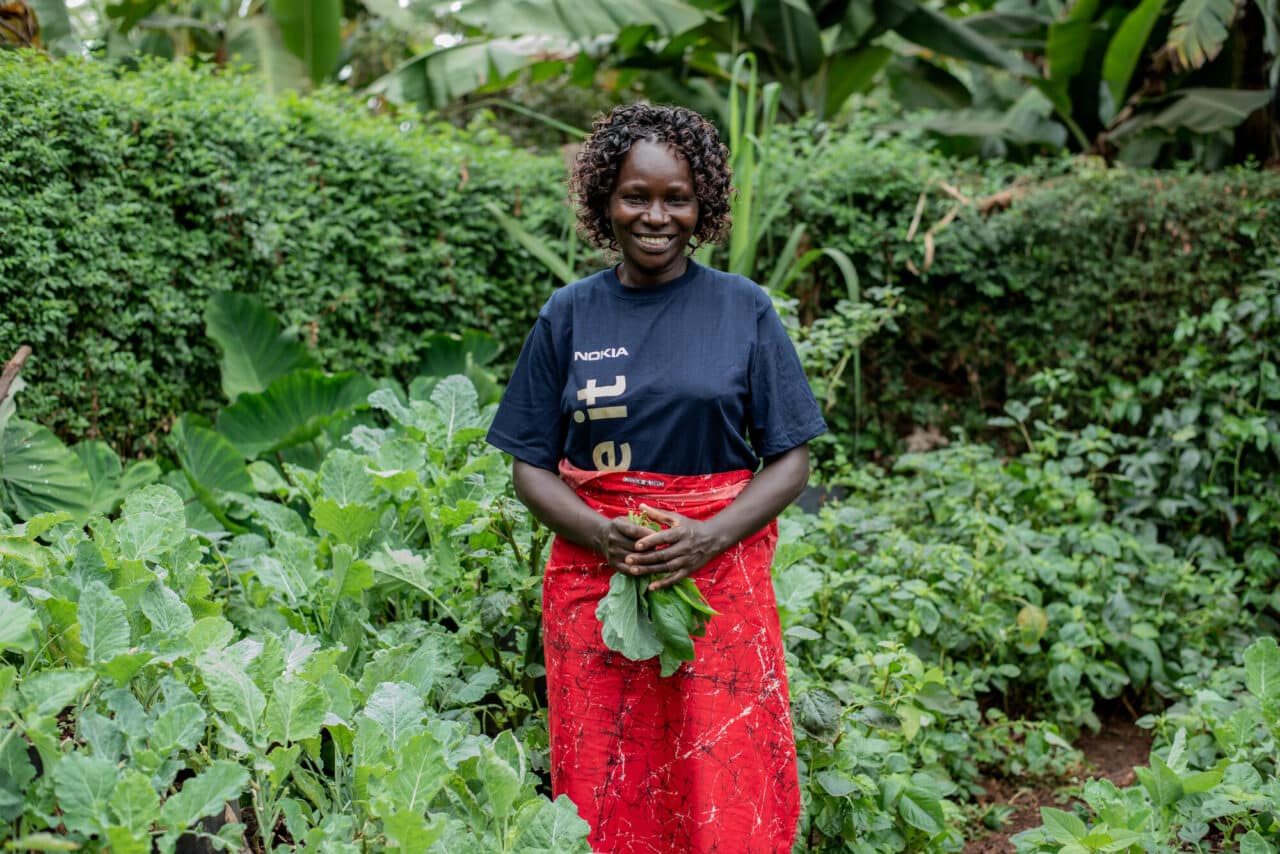
Regenerative agriculture
Running since
2020
Country
Kenya
Target reach
60,000
Key focus areas
Boost productivity
Increase food security and nutrition
Protect ecosystems
Active
Regenerative agriculture
Farm Africa is helping to increase the production, incomes and climate resilience of 60,000 farmers in Embu and Tharaka Nithi in Kenya by training 50 farmer groups, each with 200 members, in regenerative agriculture.
A key feature of the project is training 250 village-based advisors (VBAs) in regenerative agriculture techniques, who then share the knowledge with more farmers across the counties to support them to grow more fruit and vegetables at home for their families. The training covers post-harvest handling, storage, kitchen garden establishment and agribusiness acumen.
The project also builds the capacity of local and national governments in developing policies on the promotion of regenerative agriculture. We will influence research institutions to adopt regenerative agriculture best practices, as well as input distributors at a commercial level.
Running since
2020
Country
Kenya
Target reach
60,000
Key focus areas
Boost productivity
Increase food security and nutrition
Protect ecosystems
Active
Waitrose Foundation
Running since
2017
Country
Kenya
Target reach
12,000
Key focus areas
Act on climate change
Empower women
Increase access to finance
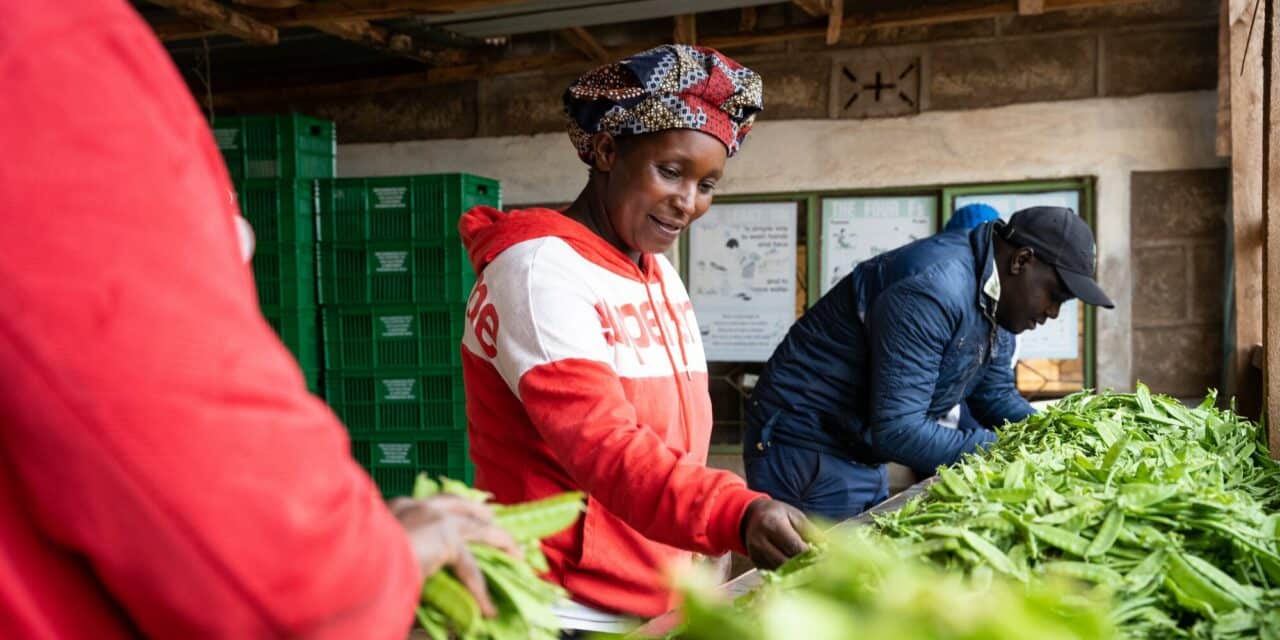
Waitrose Foundation
Running since
2017
Country
Kenya
Target reach
12,000
Key focus areas
Act on climate change
Empower women
Increase access to finance
Active
Waitrose Foundation
The Waitrose Foundation wants to create better livelihoods for employees and their families, creating stronger communities and sustainable supply chains around the world. Since 2017, Farm Africa has worked with the Foundation to make their vision a reality, supporting those that grow, pick and pack Waitrose & Partners’ fresh produce in Kenya.
Farm Africa is helping to improve the livelihoods of 12,000 employees across seven vegetable and flower farms in the Waitrose & Partners supply chain by managing a series of projects that are funded by sales of Foundation produce and supplier farms in the UK.
The project focuses on five key areas including: health and wellbeing, supporting learning, environment and green energy; improved water and sanitation and access to finance.
Running since
2017
Country
Kenya
Target reach
12,000
Key focus areas
Act on climate change
Empower women
Increase access to finance
Complete
Growing Futures
Running from
2016-2023
Country
Kenya
People reached
2,500
Key focus areas
Boost productivity
Boost youth employment
Connect farmers to markets
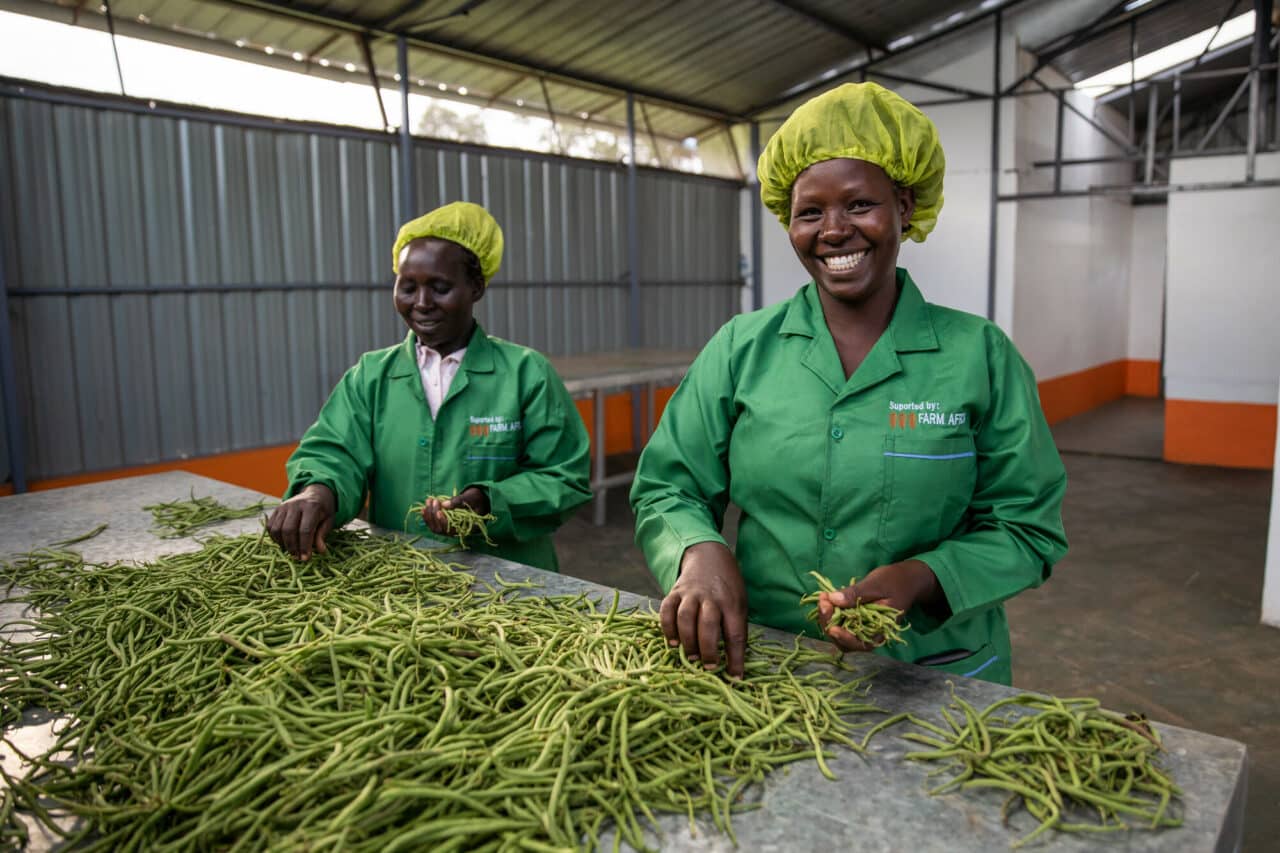
Growing Futures
Running from
2016-2023
Country
Kenya
People reached
2,500
Key focus areas
Boost productivity
Boost youth employment
Connect farmers to markets
Complete
Growing Futures
Growing Futures supported 800 young farmers in Trans-Nzoia County and 1,700 young farmers in Elgeyo Marakwet County to grow export-quality crops, set up sustainable relationships with buyers and boost their resilience to climate change and seasonal variability. The project helped young people in western Kenya set up profitable farming enterprises growing and selling vegetables that are in high demand, such as French beans, mangetouts, kale, tomatoes and cabbages.
Running from
2016-2023
Country
Kenya
People reached
2,500
Key focus areas
Boost productivity
Boost youth employment
Connect farmers to markets
Complete
Entrepreneurship for young refugees
Running from
2022
Country
Kenya
People reached
105
Key focus areas
Boost youth employment
Increase access to finance
Support businesses
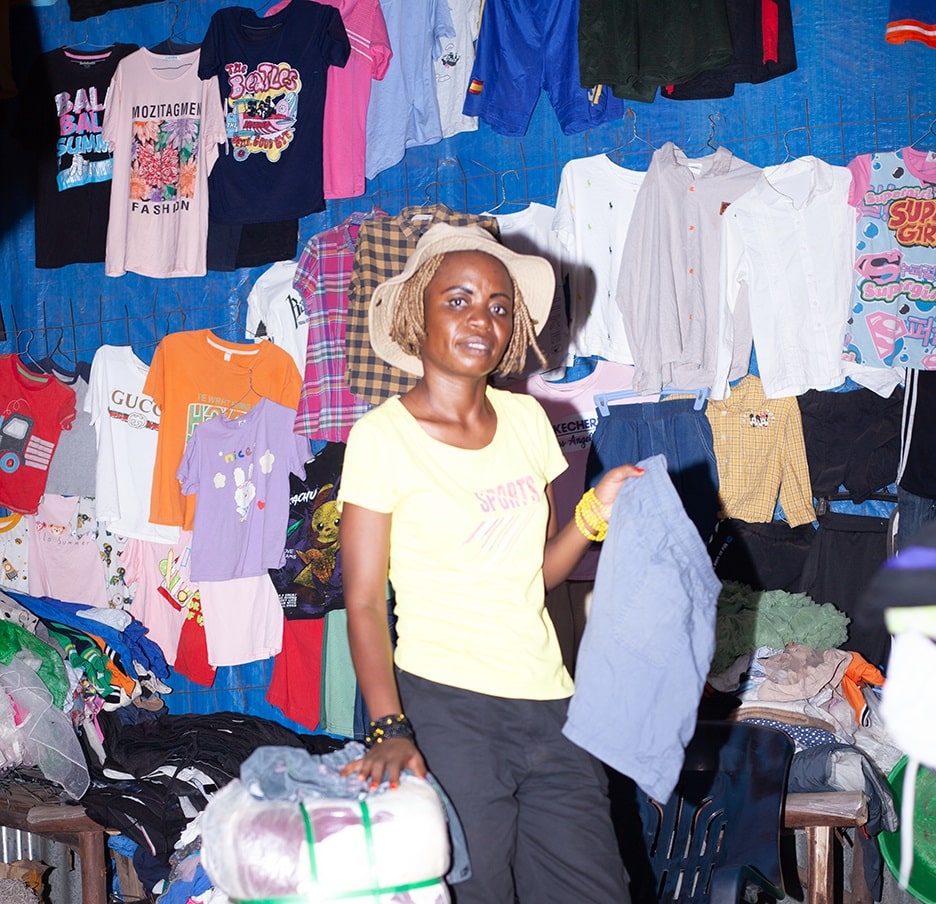
Entrepreneurship for young refugees
Running from
2022
Country
Kenya
People reached
105
Key focus areas
Boost youth employment
Increase access to finance
Support businesses
Complete
Entrepreneurship for young refugees
Farm Africa and the World University Service of Canada (WUSC) are addressing the challenges faced by small businesses in Kakuma and Kalobeyei refugee camps in northern Kenya, where the arid environment makes agricultural production difficult, the local population has effectively prohibited refugees from keeping livestock and there is poor access to markets and minimal employment opportunities. The project’s main focus is to stimulate innovation and strengthen economic opportunities for refugee and host community entrepreneurs.
The project is providing financing and business development services to micro and small enterprises (MSEs), including tailored mentorship, ensuring they gain the expertise and financial support they need to generate both revenue and local jobs.
Running from
2022
Country
Kenya
People reached
105
Key focus areas
Boost youth employment
Increase access to finance
Support businesses
Complete
Cultivate
Running from
2019-2022
Country
Ethiopia
People reached
20 agribusinesses
Key focus areas
Connect farmers to markets
Increase incomes
Support businesses
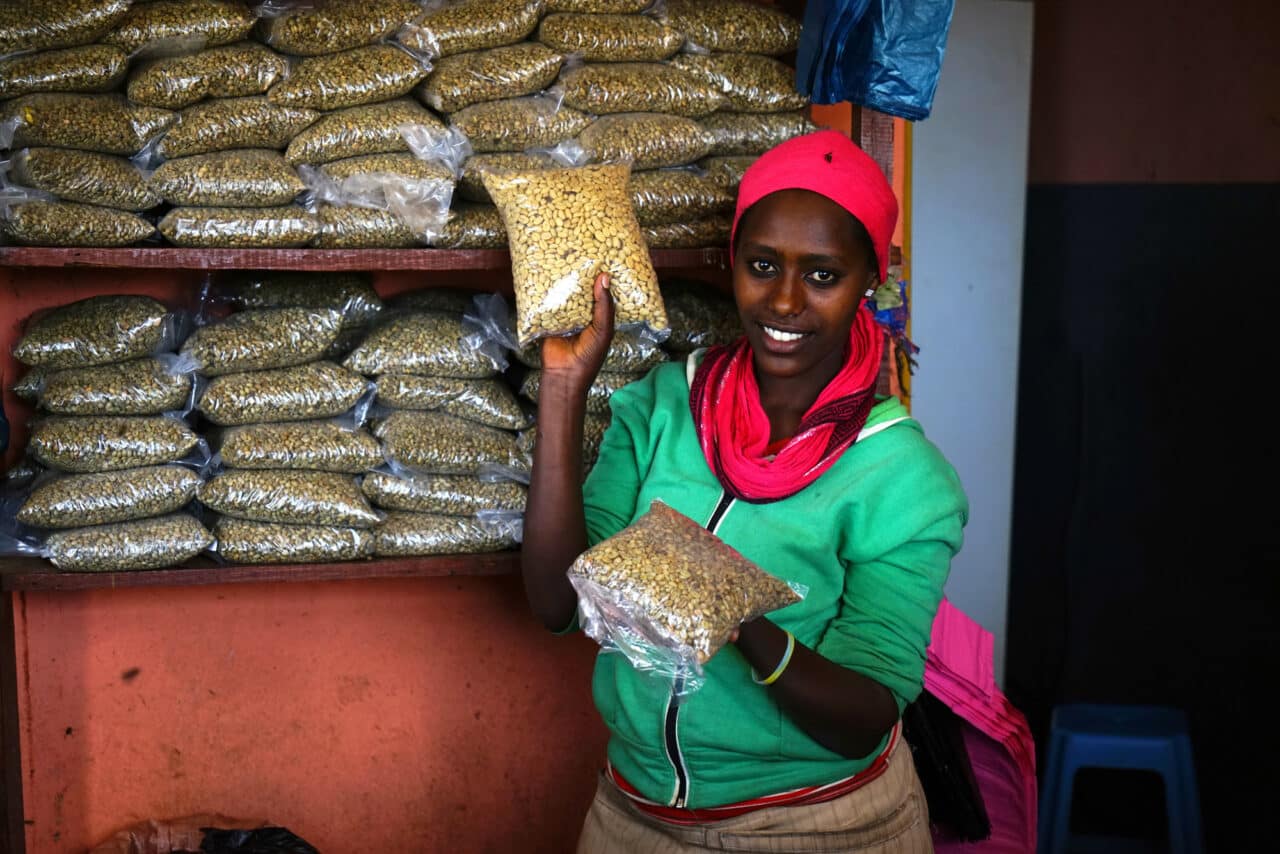
Cultivate
Running from
2019-2022
Country
Ethiopia
People reached
20 agribusinesses
Key focus areas
Connect farmers to markets
Increase incomes
Support businesses
Complete
Cultivate
With financial support from the Vitol Foundation, Cultivate provided businesses in Kenya, Tanzania and Ethiopia with tailored business development support and training using scalable online delivery mechanisms. Drawing on Farm Africa’s experience of analysing value chains and supporting first-mile agribusinesses, Cultivate worked with start-up and early-stage businesses with a $20,000 – $1million turnover.
Based in Kenya, Cultivate aimed to increase demand and facilitate the supply of business development services to rural small and growing agribusinesses (SGBs) across eastern Africa. We helped businesses develop and implement effective business strategies, boost their productivity and production, meet commodity standards and improve marketing operations and market access.
Through Cultivate’s online business skills training sessions and technical advisory support, SGBs identified risks and opportunities, conducted market and opportunities analysis, fostered business resilience and improved their pricing, costing and profitability for sustainable growth.
Running from
2019-2022
Country
Ethiopia
People reached
20 agribusinesses
Key focus areas
Connect farmers to markets
Increase incomes
Support businesses
Complete
Cashew nut and sesame production and marketing
Running from
2018-2020
Country
Kenya
People reached
15,000
Key focus areas
Boost youth employment
Connect farmers to markets
Support businesses
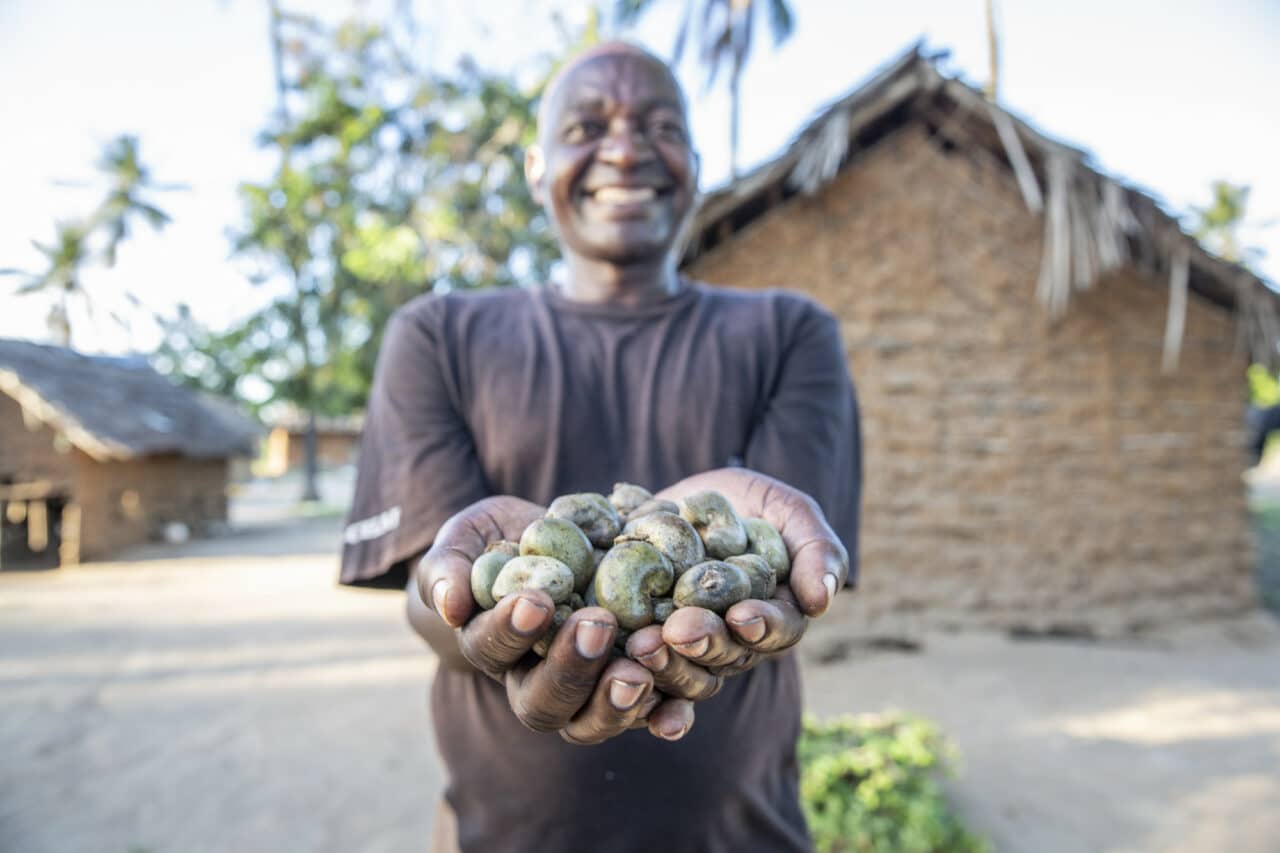
Cashew nut and sesame production and marketing
Running from
2018-2020
Country
Kenya
People reached
15,000
Key focus areas
Boost youth employment
Connect farmers to markets
Support businesses
Complete
Cashew nut and sesame production and marketing
Farm Africa partnered with Ten Senses Africa, an agricultural company dedicated to organic, fair trade and ethical business practices, to support smallholders living in Kwale, Kilifi and Lamu counties in coastal Kenya to establish or develop profitable cashew and sesame businesses.
Running from
2018-2020
Country
Kenya
People reached
15,000
Key focus areas
Boost youth employment
Connect farmers to markets
Support businesses
Complete
Kenya Market-led Aquaculture Programme
Running from
2016-2019
Country
Kenya
People reached
1,114
Key focus areas
Boost productivity
Connect farmers to markets
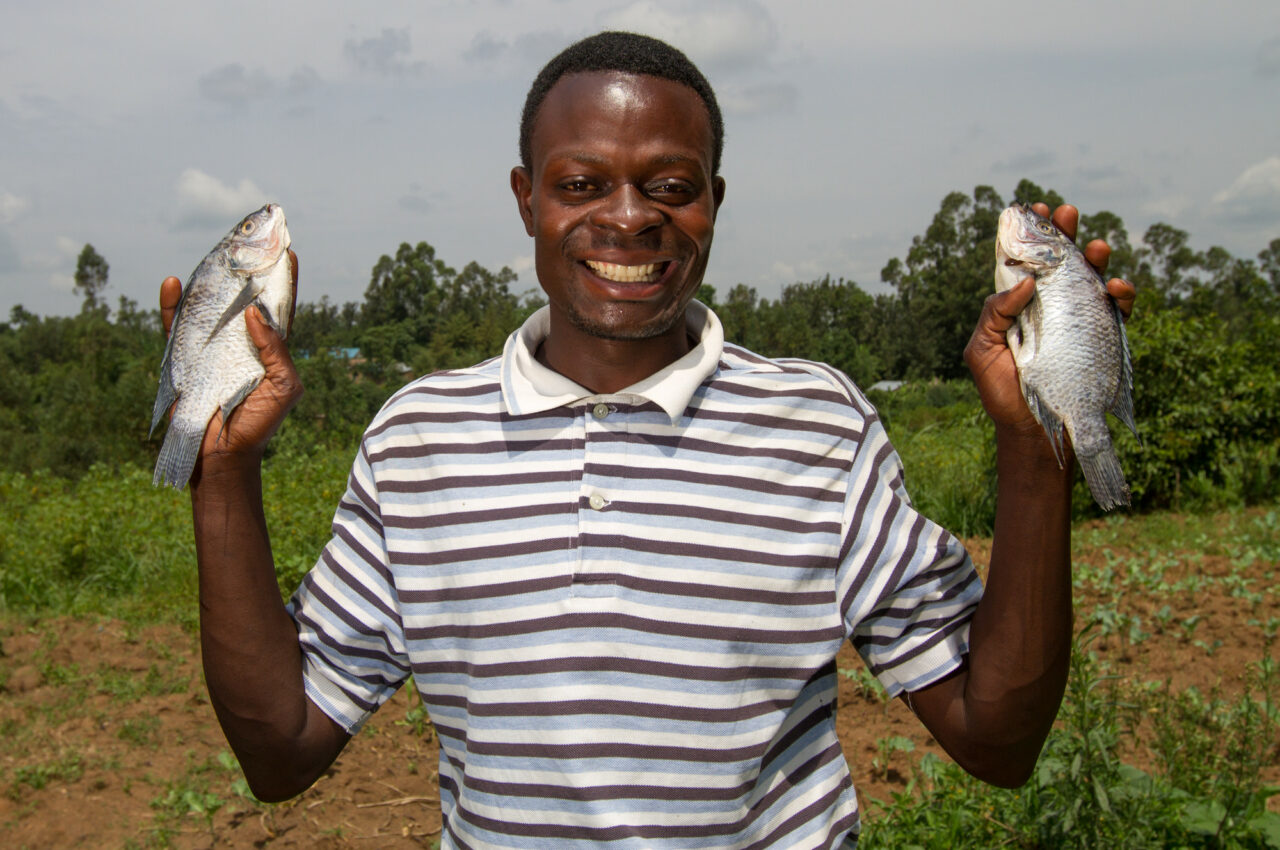
Kenya Market-led Aquaculture Programme
Running from
2016-2019
Country
Kenya
People reached
1,114
Key focus areas
Boost productivity
Connect farmers to markets
Complete
Kenya Market-led Aquaculture Programme
The four-year Kenya Market-led Aquaculture Programme (KMAP), which was implemented by Farm Africa alongside a consortium of five supporting partners, worked directly with farmers, aquaculture inputs suppliers and traders to improve production, strengthen market systems and the policy environment. The project focused on strengthening fish farmers’ links to high-quality, affordable input suppliers and improving fish farmers’ market orientation and profitability.
We provided technical and business training to 1,114 medium and large-scale fish farmers, hatcheries and fish feed producers in West and Central Kenya. Fish farmers formed farmer groups for consistent production and supply of fish to the market to help the industry thrive. We also supported private sector participation in creating an enabling policy environment for aquaculture development.
The project contributed to the removal of the 5% fisheries levy on imported feeds. We successfully lobbied for the enactment of a bill that introduced an aquaculture inputs (feeds and fingerlings) cost sharing system between fish farmers and the county government of Kakamega to boost aquaculture production in the county.
Running from
2016-2019
Country
Kenya
People reached
1,114
Key focus areas
Boost productivity
Connect farmers to markets
Complete
Carbon Sequestration Biochar Project
Running from
2023
Country
Kenya
People reached
50
Key focus areas
Act on climate change
Boost productivity
Protect ecosystems
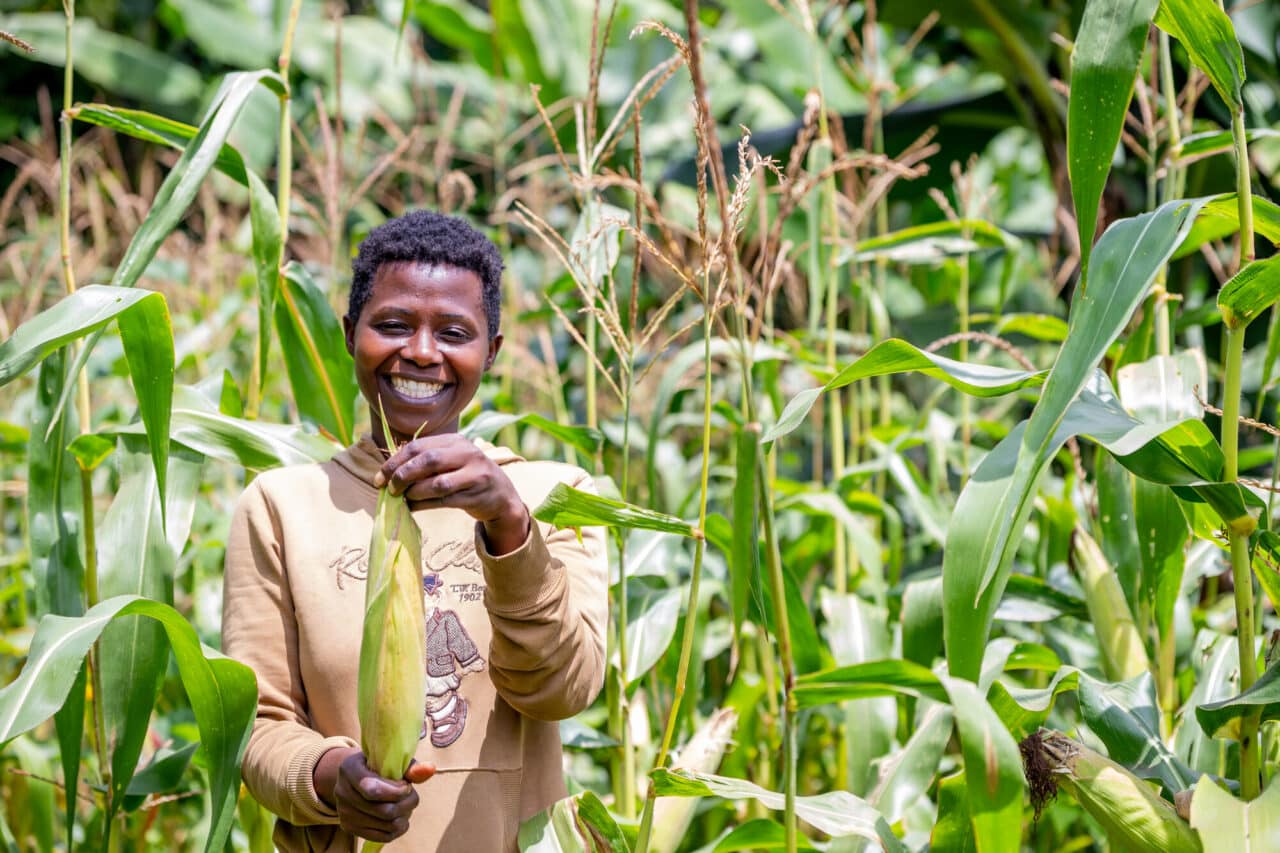
Carbon Sequestration Biochar Project
Running from
2023
Country
Kenya
People reached
50
Key focus areas
Act on climate change
Boost productivity
Protect ecosystems
Complete
Carbon Sequestration Biochar Project
This project worked with 50 nut farmers in Kwale, Kilifi and Taita Taveta in coastal Kenya to use recycled farm waste to boost harvests.
Farmers were trained on how to use a heat process to recycle waste products from macadamia nuts, coconut shells and cashew nuts into biochar, a charcoal-like material that promotes environmental conservation and enhances agricultural productivity.
The initiative reduced carbon dioxide emissions while fostering job creation, increasing incomes and improving the livelihoods of farmers.
Running from
2023
Country
Kenya
People reached
50
Key focus areas
Act on climate change
Boost productivity
Protect ecosystems

